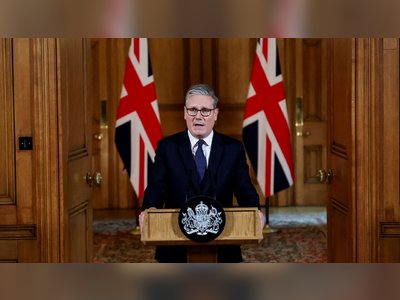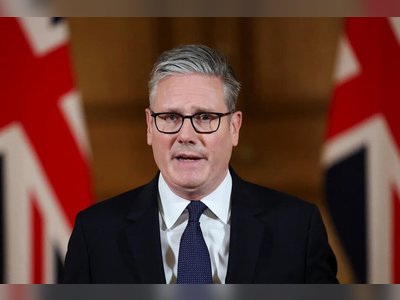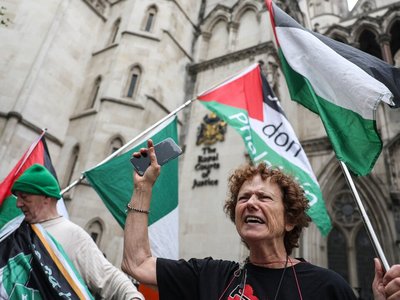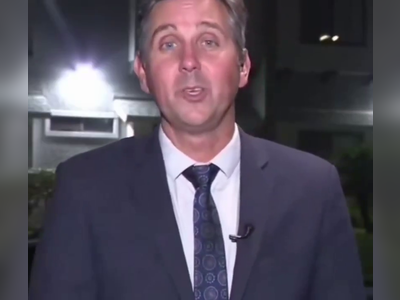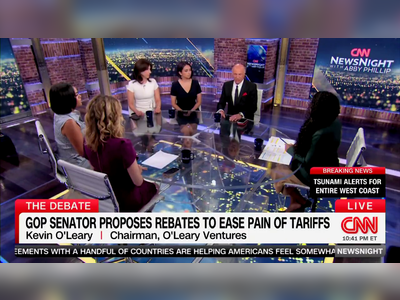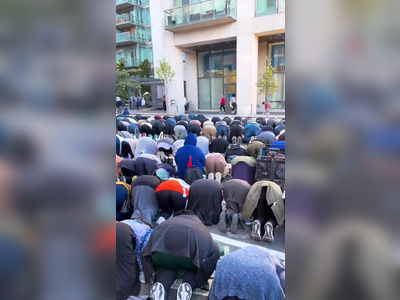US Imposes New Tariffs on Brazilian Exports Amid Political Tensions
President Trump announces a 50% tariff on all exports from Brazil in response to political actions against former President Jair Bolsonaro.
In a significant move that escalates economic tensions between the United States and Brazil, President Donald Trump has announced a 50% tariff on all Brazilian exports to the US.
This decision follows what Trump described as a politically motivated campaign against former President Jair Bolsonaro and measures taken by Brazilian authorities perceived as censorship against US social media companies.
The announcement was made during a press briefing, in which Trump characterized Brazil's actions as a 'witch hunt' against Bolsonaro, who was ousted from office amid a political crisis and allegations of undermining democracy.
Trump’s administration has expressed strong support for Bolsonaro, arguing that the former president is a victim of unjust political targeting by leftist factions within Brazil.
In addition to the political context, the new tariff, set to take effect imminently, is expected to impact a wide range of Brazilian exports, including agricultural products, metals, and manufacturing goods.
Economic analysts warn that this increase in tariffs could exacerbate trade relations and lead to retaliatory measures from Brazil.
Brazilian officials have yet to respond officially to the tariff announcement, but previous remarks from various government members indicated a commitment to free trade and a caution against trade wars.
The international trade landscape has been marked by increasing protectionist measures in recent years, with countries across the globe engaging in tariff disputes.
This development may further complicate Brazil's economic recovery as it faces challenges stemming from the COVID-19 pandemic and its implications for global supply chains.
As the situation unfolds, both domestic and international businesses will be closely monitoring the impact of these tariffs on trade flows and economic relations.
This decision follows what Trump described as a politically motivated campaign against former President Jair Bolsonaro and measures taken by Brazilian authorities perceived as censorship against US social media companies.
The announcement was made during a press briefing, in which Trump characterized Brazil's actions as a 'witch hunt' against Bolsonaro, who was ousted from office amid a political crisis and allegations of undermining democracy.
Trump’s administration has expressed strong support for Bolsonaro, arguing that the former president is a victim of unjust political targeting by leftist factions within Brazil.
In addition to the political context, the new tariff, set to take effect imminently, is expected to impact a wide range of Brazilian exports, including agricultural products, metals, and manufacturing goods.
Economic analysts warn that this increase in tariffs could exacerbate trade relations and lead to retaliatory measures from Brazil.
Brazilian officials have yet to respond officially to the tariff announcement, but previous remarks from various government members indicated a commitment to free trade and a caution against trade wars.
The international trade landscape has been marked by increasing protectionist measures in recent years, with countries across the globe engaging in tariff disputes.
This development may further complicate Brazil's economic recovery as it faces challenges stemming from the COVID-19 pandemic and its implications for global supply chains.
As the situation unfolds, both domestic and international businesses will be closely monitoring the impact of these tariffs on trade flows and economic relations.

